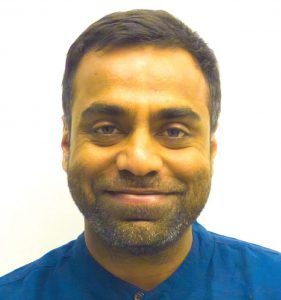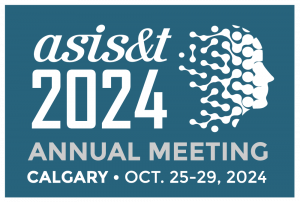Keynote Speakers
Opening Plenary
Sunday, October 27, 2024 | 8:30 AM - 10:00 AM
 Lerato Chondoma, LL.B. MBA
Lerato Chondoma, LL.B. MBA
Towards Equitable, Decolonial and Anti-Racist Futures in Research
Lerato hails from the Batuang Clan of ba ha Moletsane from Lesotho in Southern Africa and lives as uninvited guest on the unceded and unsurrendered territory of the xʷməθkʷəy̓əm (Musqueam) people, where she works and raises her children. She is currently the inaugural Associate Director for the Indigenous Research Support Initiative at the University of British Columbia.
Lerato is a proven strategic leader, public sector administrator and employment equity lawyer- deeply rooted in racial equity and anti-racism, DEI, decolonization and reconciliation. In her work at UBC, Lerato champions and supports scholarship and discourses in Indigenous community-based research, intersectional equity, decoloniality and critical race theory, that focus on the interests and priorities of Indigenous, Black and other racialized communities and researchers. She also works to understand how systems, policies and procedures can better support community-university collaborations and address issues of racism, decolonization, equity and justice on individual and system-wide levels. Lerato is very interested in exploring new approaches to recognize and center alternative ways of knowing and doing and how these are measured and evaluated in our academic systems. Lerato holds several leadership positions at UBC as well as provincially and nationally including serving as previous Chair of the Blackness Committee on the UBC Anti-Racism and Inclusive Excellence Task Force, previous Vice-Chair for the Racial and Ethno-Cultural Equity Advisory Committee that advises Vancouver City Council and as a current Director and member of the Board Executive for the Canadian Black Policy Network.
Abstract:
My praxis is grounded in intersectional approaches that centre justice, equity, anti-racism and decolonization in research and research practices. My talk will share about my work in research administration at the University of British Columbia and my approaches to working in complex systems in a way that resonates and connects to the work that you do in information sciences and research. In my work, I grapple with questions about what it means to offer, co-create and design pathways for alternative knowledges and alternative ways of being and knowing, to be weaved into research and institutional systems, policies and procedures. How do we hold space and create room for Indigenous and Black peoples, communities and collectives to set direction, to shape priorities, and to the drive the agenda on issues that relate most to themselves? How do we do all this work using decolonizing and anti-oppressive/anti-racist practices, centring justice and equity, bringing our full authentic selves to this work and our practice? How do we reimagine how success and progress is defined, measured and evaluated? How do we co-create and develop reciprocal relationships of respect and mutual accountability? I share about ways to think about equity, decolonization and anti-oppressive/anti-racist practices and experiences that give us pause to reflect on our current societal fabric; unpicking, unravelling and un/(re) learning as we go.
Closing Plenary
Tuesday, October 29, 2024 | 12:30 PM - 2:30 PM
 Ranjit Singh
Ranjit Singh
The Ordinary Ethics of Putting People First
Ranjit Singh is a senior researcher at Data & Society, conducting qualitative research for the Algorithmic Impact Methods Lab. With a particular focus on research equity, he also helps guide the organization’s commitment to equitable research practices both internally and with its external partners. Singh’s work examines the everyday experiences of people subject to data-driven practices and follows the mutual shaping of their lives and their data records, aiming to understand how data is increasingly used to imagine and develop new digital solutions for democratizing inclusion. His research sits at the intersection of data infrastructures, majority world scholarship, and public policy, and uses methods of interview-based qualitative sociology and multi-sited ethnography.
Abstract: Putting people first is a mindset; it is also a commitment to human-centered design. Designing, however, is only the beginning. This commitment must span across the lifecycle of any system from deploying and using to maintaining and decommissioning it. In this talk, I will begin by outlining the differences between ethical concerns around artificial intelligence (AI) in the global north and the global south. While global north concerns tend to focus on AI as a tool with keywords like bias, fairness, accountability, transparency, explainable AI, and human-centered design, global south concerns are oriented towards AI as an everyday experience with keywords like dignity, labor, extraction, colonialism, sovereignty, and solidarity. I will show that the thread that binds these concerns together is the commitment to putting people first across the lifecycle of an AI-based system. Approaching these concerns together requires us to critically reflect on the making and management of the agency that we are collectively granting to computational systems in organizing everyday life from curated social media content and chatbot-based customer service to automated government and financial services. Most people find themselves at the receiving end of computational systems, but they still have agency. Their struggles become moments when they exercise their agency in ordinary decision-making to overcome computational agency. By illustrating the ordinary ethics of navigating these moments, I argue that the process of becoming subject to AI is not a given; it is rather an active process of ongoing negotiations over how to put people first.
